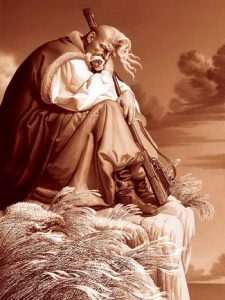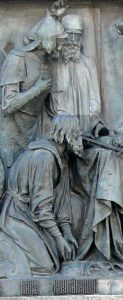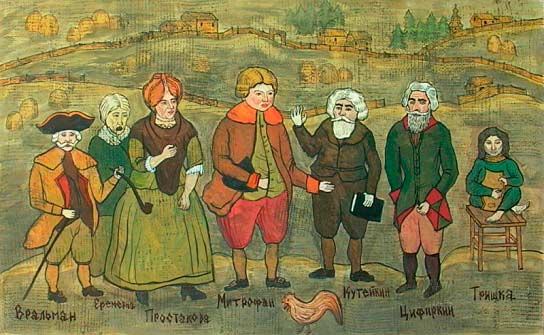contemporary art and culture
“Taras Bulba” Gogol
 The story of Gogol’s creation of the Taras Bulba story, the history of influences on the author of literary works by his predecessors, is very complex and has not yet been fully elucidated. First of all, interest in the past of Little Russia, and especially in the Cossacks, as the most vivid manifestation of its history, was strong in Gogol from his youth. He dreamed about creating a historical tragedy from the life of old Ukraine, then about the history of Little Russia, “in six small, or in four large volumes”. Continue reading
The story of Gogol’s creation of the Taras Bulba story, the history of influences on the author of literary works by his predecessors, is very complex and has not yet been fully elucidated. First of all, interest in the past of Little Russia, and especially in the Cossacks, as the most vivid manifestation of its history, was strong in Gogol from his youth. He dreamed about creating a historical tragedy from the life of old Ukraine, then about the history of Little Russia, “in six small, or in four large volumes”. Continue reading
“The Tale” by Abraham Palitsyna
 The famous figure of the Time of Troubles, Avraham Palitsyn, described the circumstances of protection from the Polish troops of the Trinity-Sergius Lavra and his personal exploits in a work entitled: “The Legend of the Troitsky Sergiyev Monastery siege from the Poles and Lithuania, and the insurgencies later in Russia, composed by the Holy Trinity Monastery Kelarem Abraham Palitsyn. This “Legend” is a monument, remarkable as much in literary as in historical terms and reveals in the author remarkable literary talent and not only the reading in books of theological content, but also familiarity with the facts of the history of civil and even philosophy. Continue reading
The famous figure of the Time of Troubles, Avraham Palitsyn, described the circumstances of protection from the Polish troops of the Trinity-Sergius Lavra and his personal exploits in a work entitled: “The Legend of the Troitsky Sergiyev Monastery siege from the Poles and Lithuania, and the insurgencies later in Russia, composed by the Holy Trinity Monastery Kelarem Abraham Palitsyn. This “Legend” is a monument, remarkable as much in literary as in historical terms and reveals in the author remarkable literary talent and not only the reading in books of theological content, but also familiarity with the facts of the history of civil and even philosophy. Continue reading
“Woe from Wit” and “Misanthrope” by Moliere
 Of foreign works, the comedy by Moliere “Misanthrope” was especially important for “Woe from Wit” (see the summary, analysis and the full text). Studies by Professor Alexei Veselovsky showed that the image of Alceste was reflected in Chatsky: in the work of Griboyedov, the love story of the main character of “The Misanthrope”, Alceste, was repeated. Finally, the similarities are observed in some trifles. Of course, such a borrowing doesn’t make Griboedov’s comedy non-independent: if the form and some details were borrowed, then its content remained deeply Russian. Continue reading
Of foreign works, the comedy by Moliere “Misanthrope” was especially important for “Woe from Wit” (see the summary, analysis and the full text). Studies by Professor Alexei Veselovsky showed that the image of Alceste was reflected in Chatsky: in the work of Griboyedov, the love story of the main character of “The Misanthrope”, Alceste, was repeated. Finally, the similarities are observed in some trifles. Of course, such a borrowing doesn’t make Griboedov’s comedy non-independent: if the form and some details were borrowed, then its content remained deeply Russian. Continue reading



